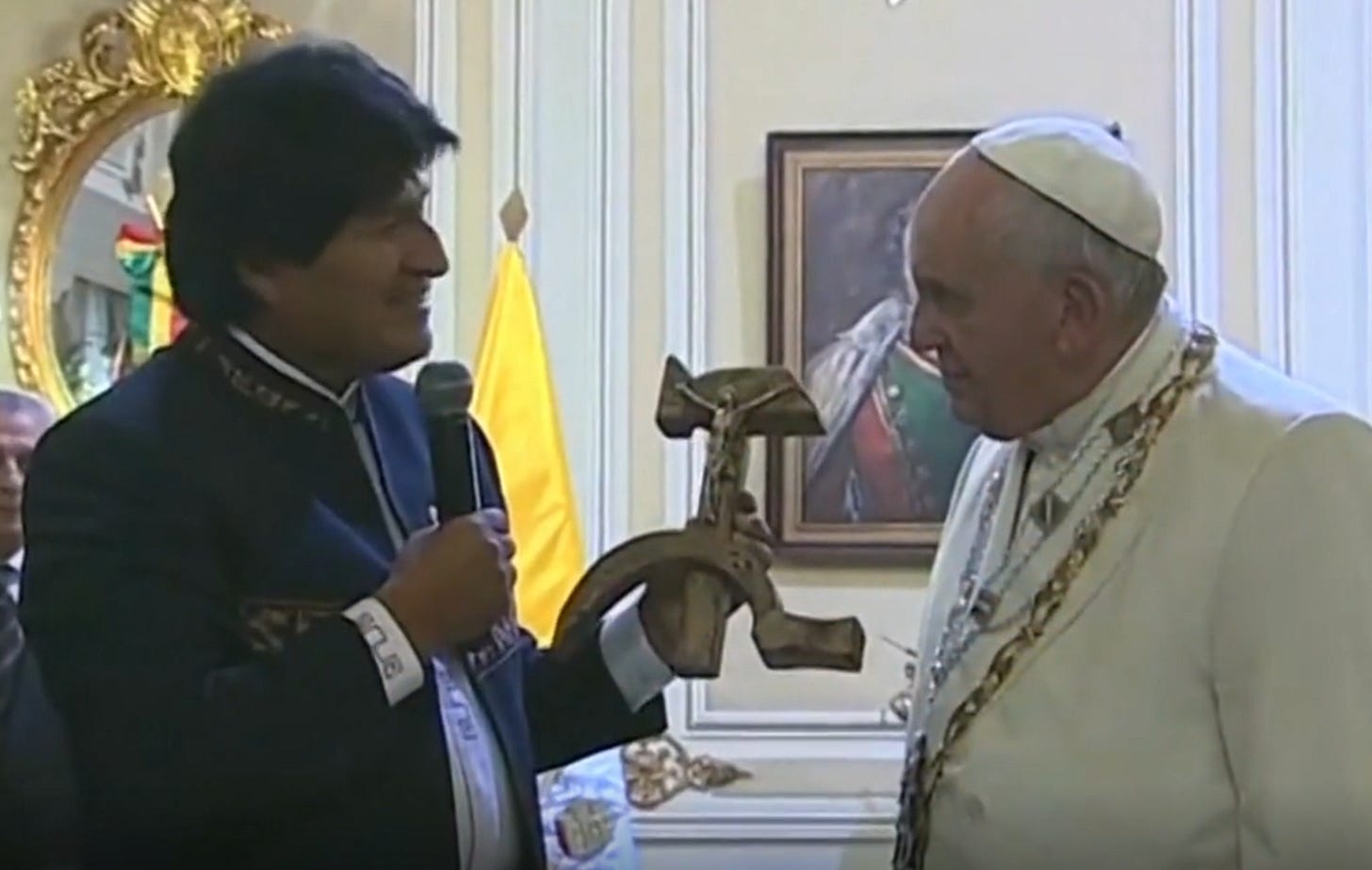In Thanksgiving for a Papacy of Contradictions
For those willing to learn, Divine Providence taught much in the Bergoglian era
I am pleased to publish today an incisive essay by a new guest contributor to Tradition & Sanity, Sebastian Morello (stay tuned for more details on Thursday). I hope you will enjoy it as much as I have. —Dr. K

Francis’s Papacy of Contradictions
For obvious reasons, for the last week I have been reflecting on the legacy of Pope Francis. It must be admitted by even his most eager apologists that he was a man of contradictions.
Within a few months of his election, he issued Evangelii Gaudium with the implication being that he was going to revitalise the missionary endeavour of the Church. And yet, he went on to oversee the collapse of what little mission the Church had left, sowing confusion and creating a fear among the clergy of appearing inordinately orthodox.
Soon, Francis was regularly addressing a largely empty St. Peter’s Square each Wednesday, as his popularity plummeted. Those images of just a few attendees at such addresses conveyed the success of the Church’s newfound missionary enthusiasm under Francis. Then, having supposedly put mission at the core of his papacy, he took sides over Europe’s migrant crisis, in effect publicly backing the acceleration of Europe’s Islamification.
Pope Francis also proclaimed that the Church must listen to the voices of the young, but he ignored the many young people who want a return to the Church’s tradition and a wider availability of the ancient Roman liturgy. With regard to the liturgy, towards the final years of his papacy, he declared that the bishop was “moderator, promoter, and guardian of the whole liturgical life of the particular Church entrusted to him.” But it was subsequently “clarified” that bishops could not permit priests to offer the old rite or churches to host it without specific authorization from the Vatican. He often said that he wanted a “listening Church,” but he refused to listen to traditional Catholics or even grant audiences to those who questioned his way of governing.
Francis rightly railed against clericalism and ecclesiastical centralisation, but he governed in a way that greatly intensified these maladies in the Church. He spoke regularly of creating a welcoming and open Church whilst simultaneously establishing a climate of fear in the hierarchy, especially in the Roman Curia. To the shock of many of his progressivist supporters, he publicly raised the alarm about the widespread problem of “faggotry”—his word—among the clergy, but he went to considerable lengths to protect and even promote well-known homosexuals and abusers among the priesthood and episcopacy.
Laudably, Francis restored the ancient papal title of “Patriarch of the West” after Benedict XVI scandalously and inexplicably abolished it in 2006. This was surely an indication that Francis wanted better relations with the Orthodox, suggesting as it did a return to the pre-schismatic patriarchal model initially authorised by Emperor Justinian the Great in the 6th century. But Francis simultaneously set ecumenical relations with the Orthodox back centuries by quashing the ancient Roman liturgy. As one renowned Orthodox theologian said to me directly, “If a pope can do that to a holy liturgy of the Church that goes back to the Apostolic age, we Orthodox would be mad to acknowledge his authority now, and thereby put at risk our ancient liturgies which we treasure above all else.”
Praising Francis is a very novel experience for me, but credit where credit is due: he wrote insightfully in Laudato Si about the ecological crisis facing complex natural systems that are being rapidly destroyed especially by poor urban planning, air and water pollution, waste dumping, and market forces that advance rapid deforestation. He called out those organisations that posture as “environmentally friendly” because they claim to plant two trees for each one felled, when by so doing they wreck topsoil and replace old and biodiverse forests that depend on vast mycelial webs with newly planted monocultures that cannot sustain animal and plant life, which is also fast vanishing.
Keep reading with a 7-day free trial
Subscribe to Tradition and Sanity to keep reading this post and get 7 days of free access to the full post archives.




